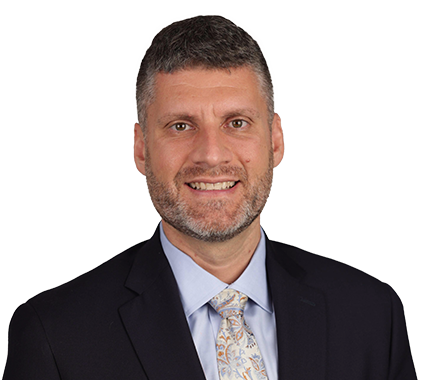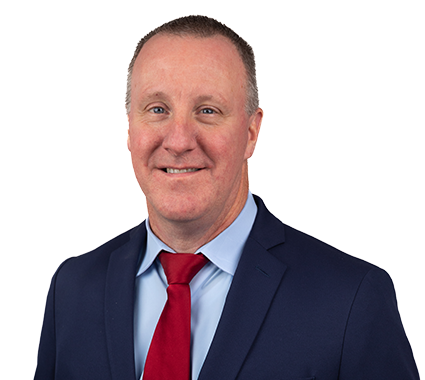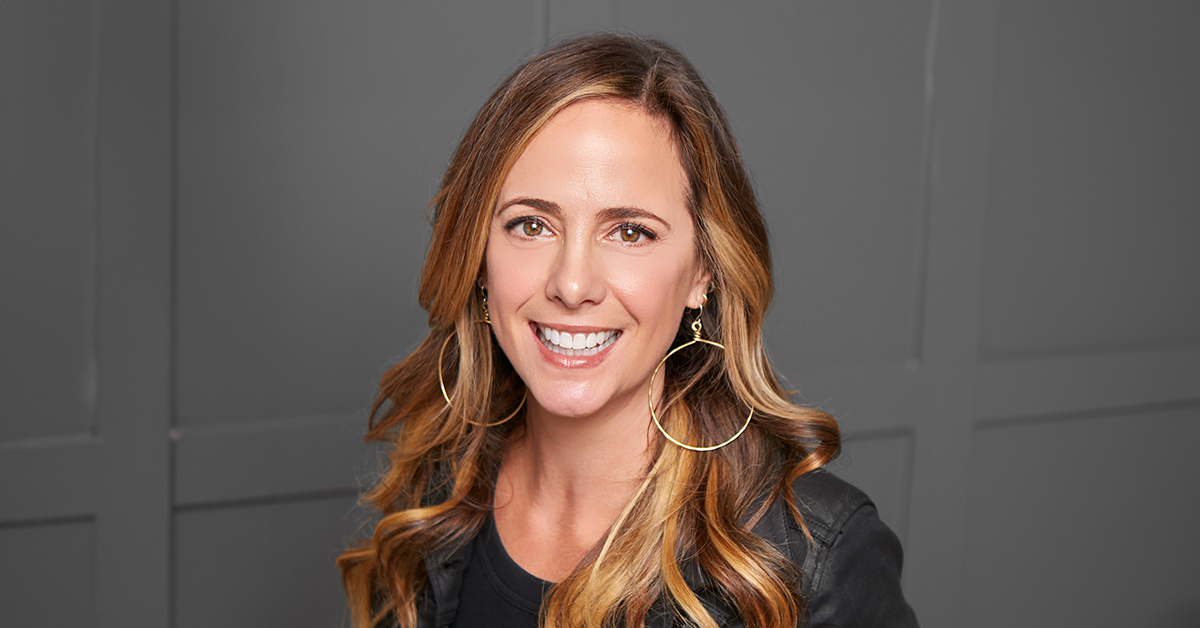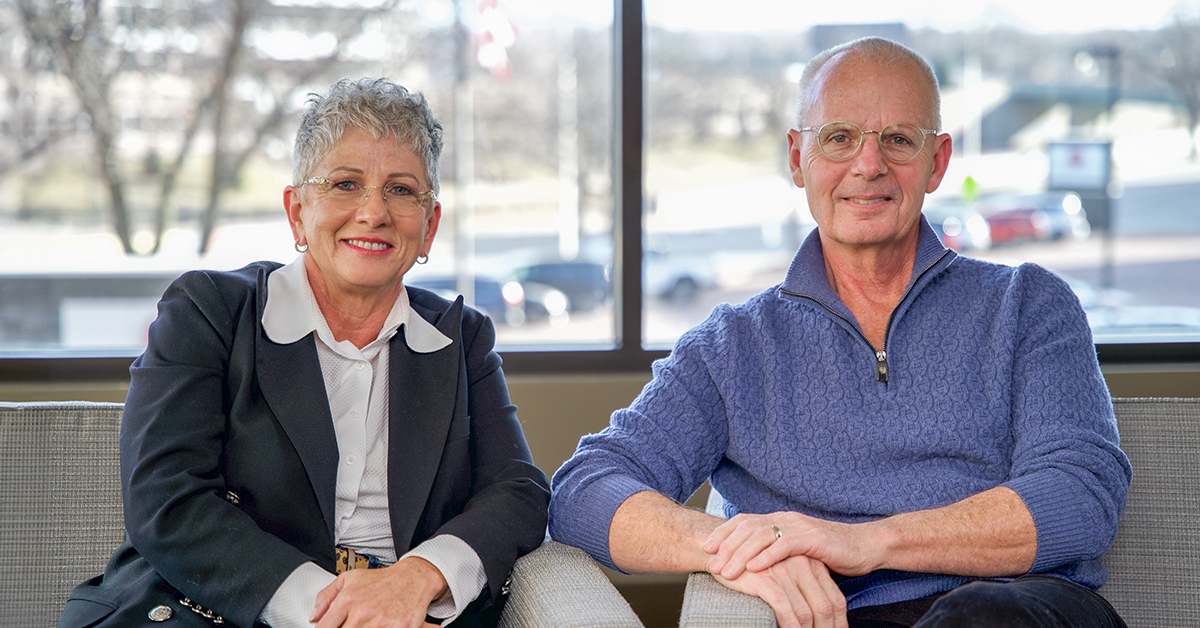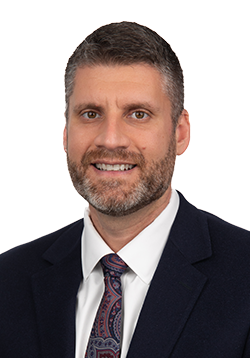
He went from $40,000 in debt to becoming a net-worth millionaire in less than 10 years, all by his early 30s. So, what’s George Kamel’s secret?
“In our millionaire study, we found that it was really boring habits that caused [people] to become millionaires,” said The Ramsey Show co-host and bestselling author.
George recently joined me for an episode of our podcast, Common Cents on the Prairie™, to bust some common millionaire myths.
Keep reading to check out the highlights from our conversation, and when you’re ready, you can watch the full episode on YouTube.
Becoming a net-worth millionaire
Adam: You went from a negative net worth to a million-dollar net worth in less than 10 years, which is incredible. Set the stage for me.
George: Well, I grew up with immigrant parents who came from the Middle East, so I was a first-generation American here in the States. My parents adapted to the American culture pretty quickly, and that included the money culture.
So it was, build your credit, get the credit, get the mortgage. I fell for very similar traps.
I racked up $36,000 in student loan debt; I got two credit cards. And then, $4,000 in credit card debt later, I was frustrated, anxious, still broke, and thinking that this can’t be it.
Being this rat in the financial maze is not what we were created to do. So, I escaped average and got connected with the Ramsey organization. I got an internship here, went through Financial Peace University — our flagship money course — and it was like the veil was just ripped off.
Over 18 months, I got out of that $40,000 in consumer debt. I met my wife at Ramsey, and she was way better off, way better looking, way better with money than me.
We started off our marriage debt-free. We got a house in a very modest way — a 15-year fixed mortgage with a big down payment — and we paid it off in 26 months.
All of that, on top of investing in our 401(k)s here at Ramsey, led us to all of a sudden be net-worth millionaires in our early 30s with no payments in the world.
Adam: You had a quote in your book, Breaking Free From Broke. You said, “Ignorance was bliss until it was broke.”
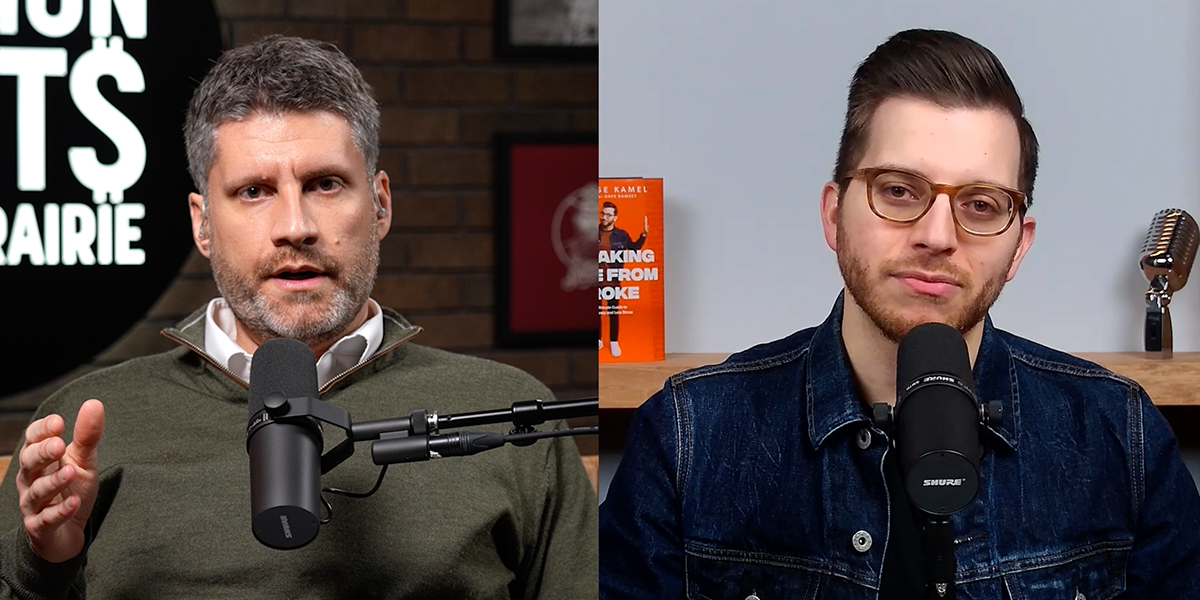
George: You know, my debt-free journey from consumer debt was when I was single. The whole ignorance was bliss part was that when you don’t really know much about money, it’s just easier to make mistakes. It’s easier to justify them.
And that’s what happened when I went through Financial Peace University and I read The Total Money Makeover. You can continue to stay in debt, but your body is like, “Hey, you know this isn’t safe, right?”
Usually, ignorance does lead to broke because a lack of financial literacy is what causes so many of us out there to make these financial mistakes that take decades, sometimes, to clean up.
Adam: My exposure to Dave Ramsey started right at the end of graduate school. I was driving back and forth between South Bend and Minneapolis because my wife was living in Minneapolis, and so I had a lot of windshield time.
So, I stopped at Barnes & Noble and found The Total Money Makeover on CDs and listened to those on my way. Part of me wishes I would’ve found it sooner.
George: As we all do. We always say that the best time to plant the tree was 20 years ago; the next best time is today.
But you’ve got to go, “All right, I’m going to start today. Whether I’m 30, 40, or 50, there’s still time. There’s still hope for me.”
Millionaire myth-busting
Adam: You went from a negative net worth to a million-dollar net worth. During this period of time, did you do any of the following — did you win the lottery?
George: No.
Adam: Did you sell a business?
George: No.
Adam: Did you build an app?
George: No.
Adam: Did you inherit lots of money?
George: Zero.
Adam: Did you start making millions of dollars a year?
George: No. Although, Dave [Ramsey], if you’re listening, I think this guy’s got ideas. I like him.
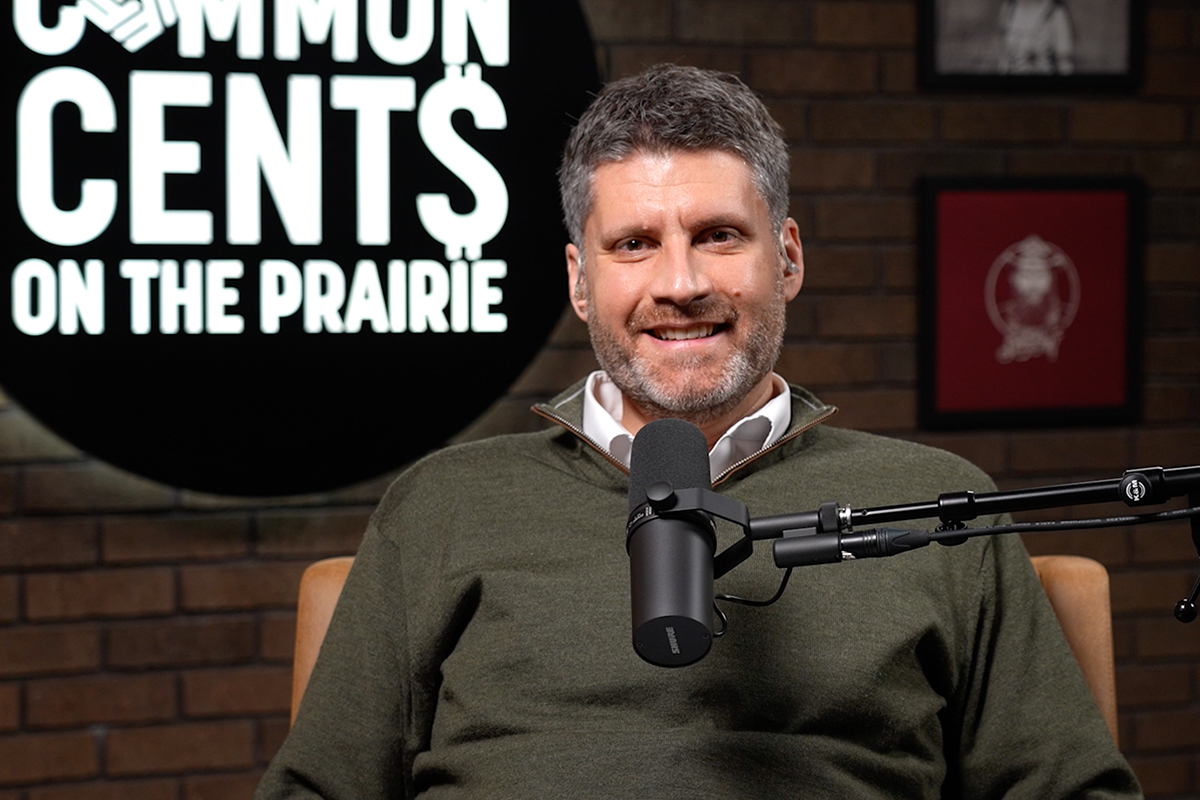 Adam: I mean, you’re just kind of a normal dude, right?
Adam: I mean, you’re just kind of a normal dude, right?
George: It’s almost too boring to excite anyone when they go, “What’s the secret?” And I’m like, “Invest in your 401(k) and get your house paid off as soon as you can.” That’s it.
It’s as simple as that and as hard as that because we want to overcomplicate it. We want to make it sexier and more interesting than it really is.
But in our millionaire study, we found that it was really boring habits that caused people to become millionaires. It was just, “I had an employer and put away money for the future and got our house paid off.”
Adam: We always talk about the people who sell businesses or have a big liquidity event or tech millionaires or whatever. But I think your research has proven time and time again that most millionaires are W-2 millionaires, and most of it is through what you’re talking about, through their 401(k).
George: And it’s frustrating for people in their 20s because there’s this instant gratification. So, they’re looking at their parents who probably still have a mortgage and are still working into their 60s, and they’re going, “I don’t want that to be me. I need to be a millionaire by 30 or else I’m screwed.”
It’s heartbreaking, because I’m like, “Who told them there’s no time? Who told them that a million dollars is going to be the thing that changes their life?”
“It’s not all your fault, but it’s your responsibility”
Adam: What do you think when you hear young people say that success isn’t attainable and that it’s just not going to work out for them?
George: That was me at 23 going, “It’s everyone else’s problem. It’s the Boomers’ fault for ruining the housing market. The guy in the White House needs to fix this. When is student loan forgiveness going to happen? Inflation is killing me.”
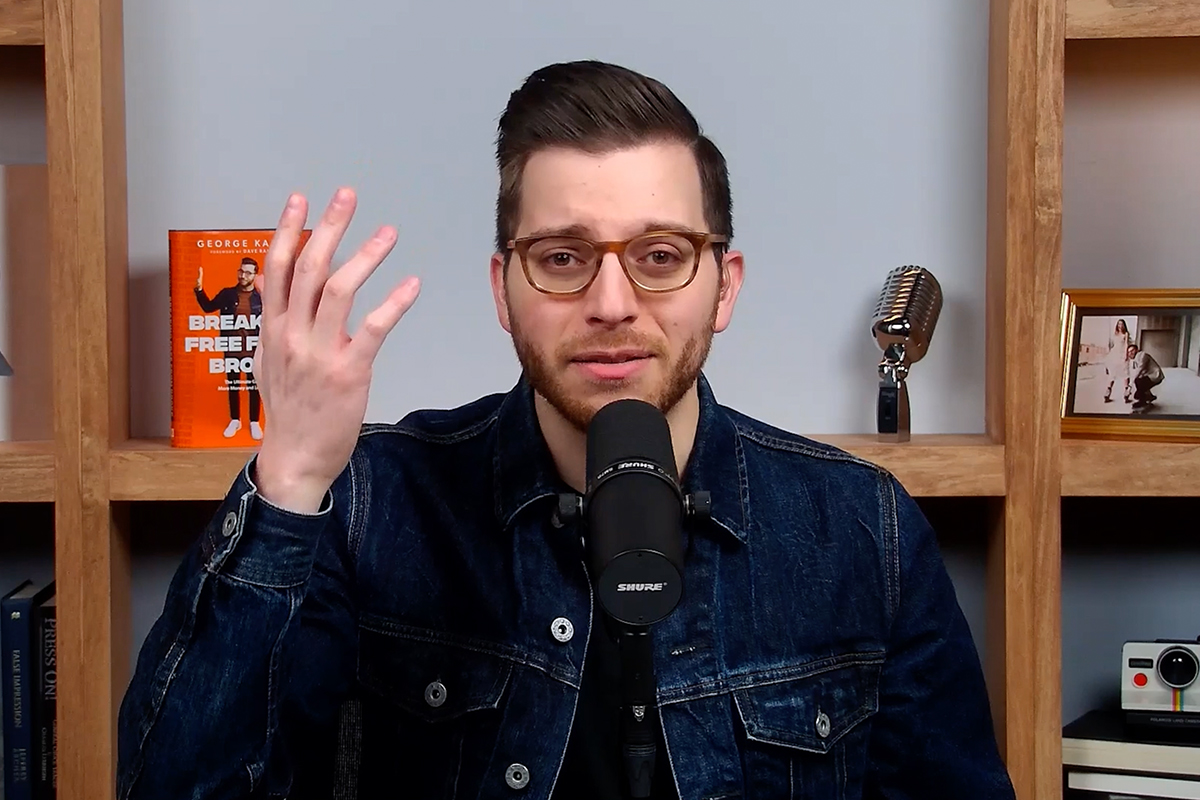 It’s all of these mental gymnastics that we use and justifications that keep us where we are. At the end of the day, we have to realize it’s not all your fault, but it’s your responsibility.
It’s all of these mental gymnastics that we use and justifications that keep us where we are. At the end of the day, we have to realize it’s not all your fault, but it’s your responsibility.
So, if we can grapple with all of that and then look in the mirror and go, “That person’s the solution,” that’s when it changes.
Adam: Everyone, at this point, has heard of FOMO — the fear of missing out. Tell me what JOMO is.
George: FOMO is at the heart of a lot of the younger generations: the fear of missing out on being a homeowner, or going on that trip, or having that thing. So, there’s this other side of the coin which is JOMO — the joy of missing out.
There is a joy in setting a boundary and saying no and having a season of sacrifice, realizing that you’re doing what’s best for your family because nobody else pays your bills.
The joy of missing out just comes down to having a smile on your face while you’re working that second job and eating that Lean Cuisine when you want to be eating out because you know the freedom that’s on the other side.
For all the details on what George has to say about becoming a net-worth millionaire, watch the full episode on YouTube or listen on your favorite podcast streaming app.
And, if you’re ready to take responsibility for your financial situation and would like some extra guidance, reach out to our team at First National Wealth Management; we’d be happy to help!
Any comments, insights, or strategies discussed in this article are intended to be general in nature and, therefore, may not be suitable for you and your situation, whatever that may be. Before acting on anything written here, please consult with your attorney, CPA, and/or your financial advisor.

